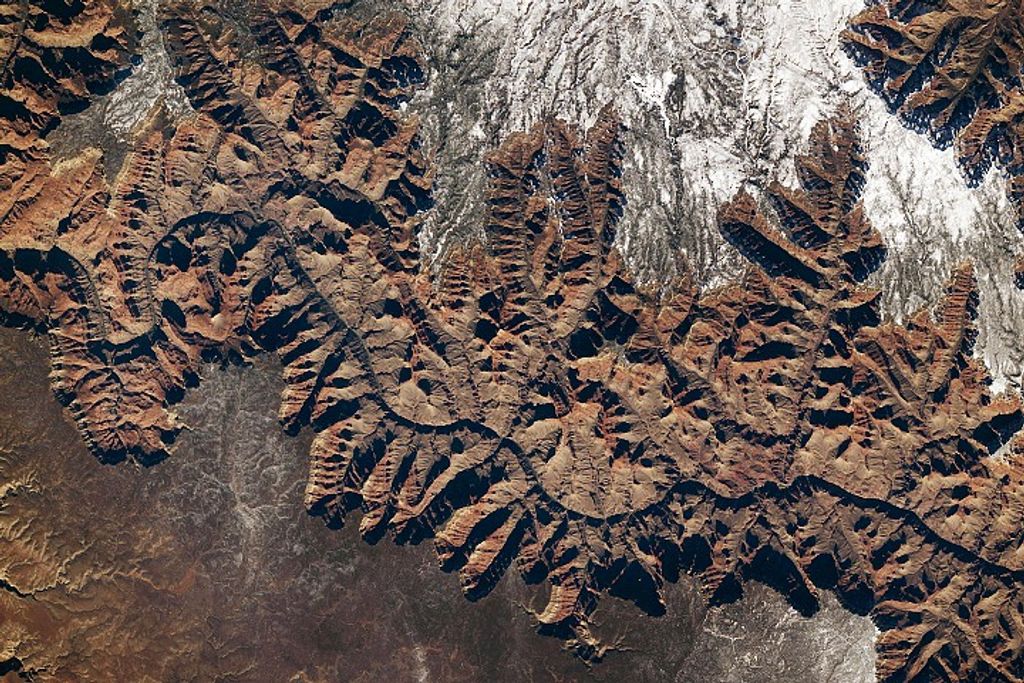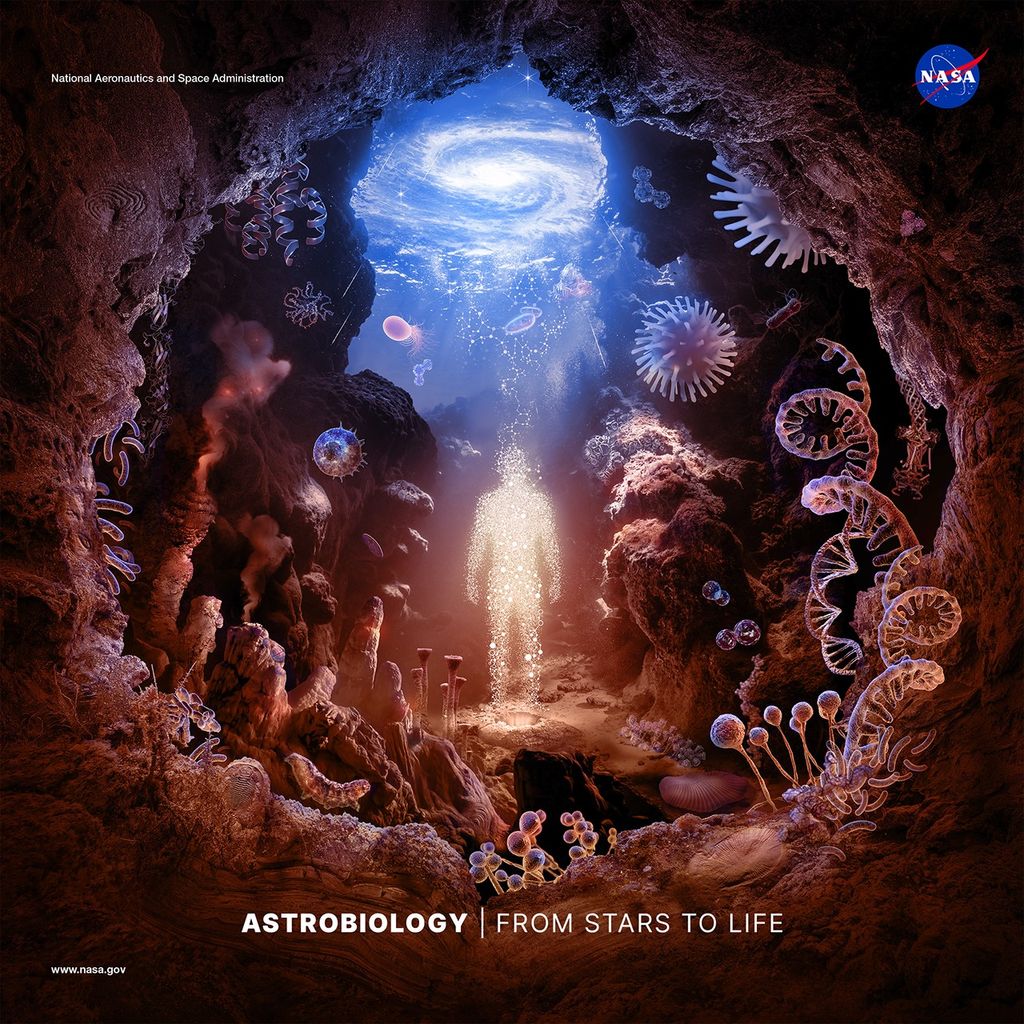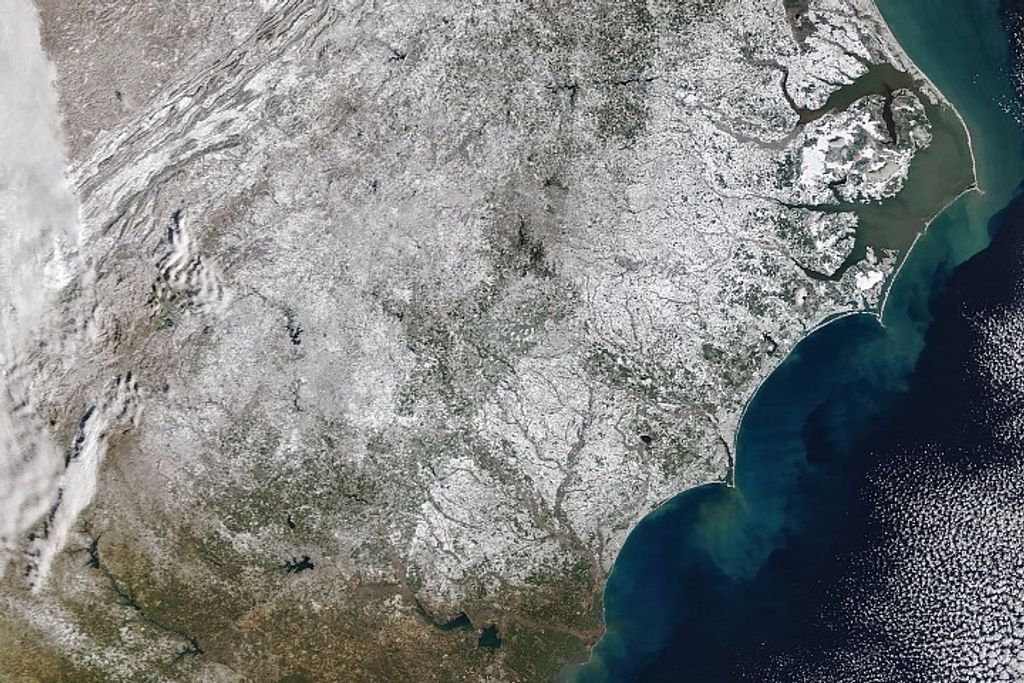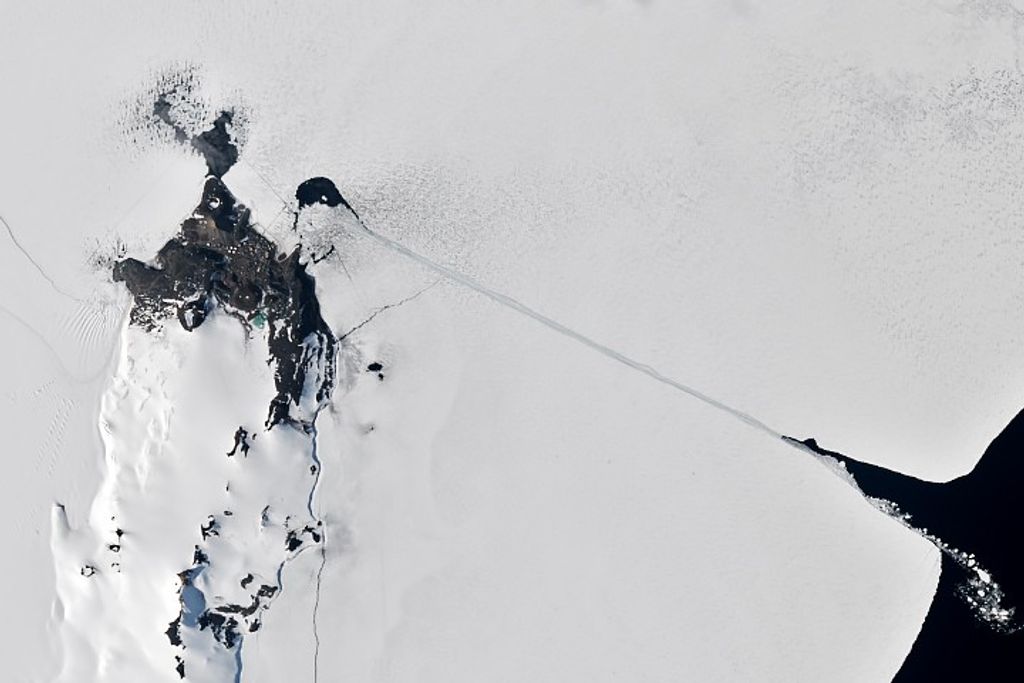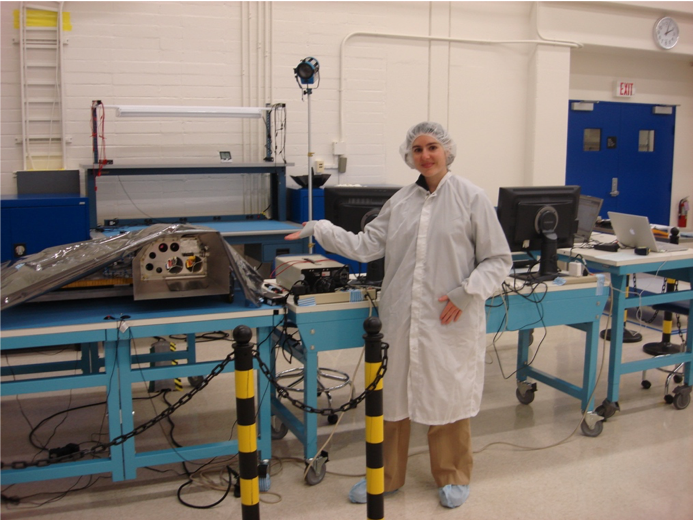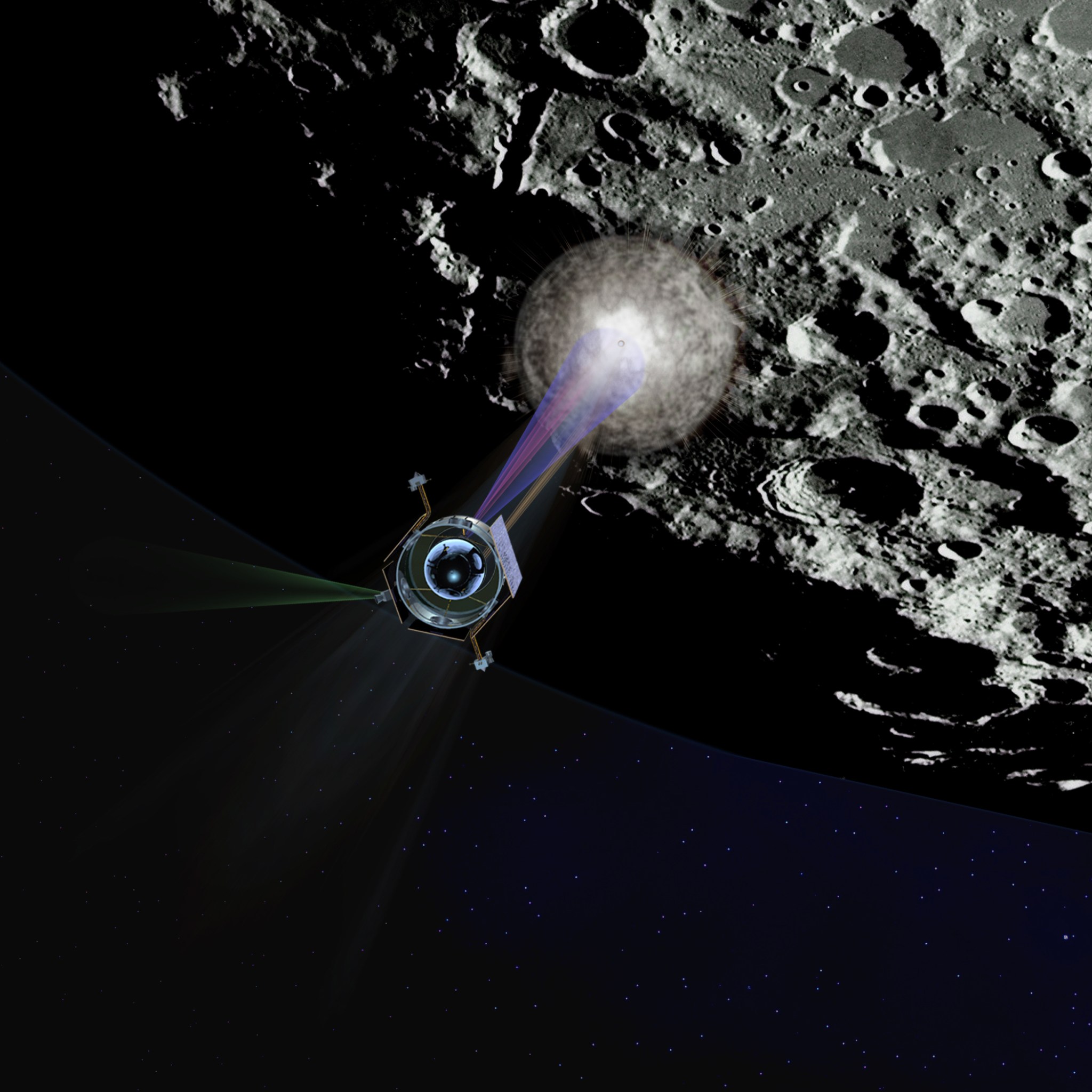Where are you from? And what is your educational background?
I was born and raised in Syracuse, New York, I went to college in central New York at Colgate University, to grad school at the University of North Dakota, and then to the University of Colorado, in beautiful Boulder.
How did you get interested in space science? When did you know that you wanted to pursue space science as a career?
I remember first learning about the planets in third grade. I learned about the solar system and it was fascinating, then I never learned about planets again until college!
I knew it was something I was interested in and during high school, I worked at the local science museum in Syracuse, and also the planetarium. I liked to do things related to astronomy and physics and those sorts of things.
One real game changer in my life is I went to Space Camp when I was in high school and it was amazing because I met all these other people who were interested in human spaceflight, planets, astronomy and all these things that I really liked. That was when I realized, ‘Wow! People do this! There are other people like me who really like space!’ So after going to Space Camp, I decided I wanted to study astronomy and planets in college, and I was determined to go wherever I had to go to do that. That ended up being in Hamilton, NY (just outside of Syracuse), then on to North Dakota and Colorado, and eventually out to California at NASA Ames.
Is there anything else you would like to share about your educational background?
I guess the important thing for people to know is you typically will work hard doing these jobs. I really love my job. I love that I get to study the universe, but that doesn’t mean it’s always easy. Going through school I had to do a lot of math and science and some engineering work so that we can try and make sense of this universe that we live in. It’s always about working hard and just sticking with whatever it is that you want to do.
I was really fortunate that I went to some great schools and had the opportunity to work with great people and great mentors who were very positive and encouraging and made doing the work and doing the science fun. At the end of the day if you end up with a job that you really enjoy then it doesn’t feel so much like a job. It can still be a lot of work but it can be very satisfying and make you happy.
One of the things that I would share with other students is to just try a lot of different things. For example, one of the things I did, going through high school and college, was trying different internships. I had a lot of different summer jobs working at planetariums, at different universities, etc. One summer I worked at Williams College, another summer I worked at the Space Telescope Science Institute for a summer. I worked as a counselor at Space Camp for a summer, I worked at NASA Ames for a summer — I just did a lot of different things to try and figure out what aspect of studying space and science did I really like and some of the most valuable internships I had were the ones I didn’t like as much. Then you can decide, ‘OK, I don’t want to do THAT forever, so maybe I’ll try over here. I don’t really want to study galaxies forever although I think they’re cool, I think I really want to study planets more and I really like Mars’. Figuring out where it is that you want to be and what it is that you like to do is important because then you can have a job that you enjoy and is fun and you can surround yourself with great people and have a good time while at work.
How about your educational background: schools, majors, grad school, etc.?
My undergraduate major was Astrogeophysics, which basically means an Astronomy-Physics degree with a lot of geology, planetary components and chemistry added in because I wanted to study the planetary science side of things. Then I got a Master’s degree in Space Studies, which was really interesting because that work covered science, engineering, and space policy. I really wanted to learn about all the different aspects about working for NASA and everything that NASA did. Then I went to the University of Colorado at Boulder and got a Ph.D. that was focused on planetary science.
My research for my Ph.D. dissertation was focused on looking at recent water on Mars and particularly looking at Martian gullies, which are very recent water features on Mars. This was really interesting because we know that Mars is very cold and very dry, so to have recent liquid water is really surprising and interesting not only for science but ‘how did that water get there?’ and ‘how is that water flowing there?’ For astrobiology: ‘could there be life living in these areas on Mars where there is liquid water?’
The question of recent water on Mars is interesting also for future human exploration. If there’s water on Mars today could that be a resource for humans, when humans eventually go there and settle the planet?
Following that, I was fortunate to get a postdoc working at NASA Ames under Chris McKay as my advisor and I was able to continue doing more work on Mars and astrobiology and I eventually moved into working on the Moon as well. It’s been a fun ride!
How is your work related to the Ames and/or the NASA mission?
A lot of the work I do now is conducted in what we call terrestrial field analog settings. We do simulated missions here on Earth to learn about best practices and lessons for how we would do the missions on other planets or moons. For example, for the Moon case, we take rovers that are built at NASA Ames out into desert environments or very dry environments or very remote locations and run simulated missions, like you were running them on the Moon, and you have a science team that’s held back at NASA. We can’t go out into the field because when we go to the Moon and we send our rovers, we don’t get to go with them so we operate the rover remotely and we see the data coming in and then we figure out ‘how is the best way to do that? What data should come back? Who should see that data? How should the communications systems work? What do we need the rover to do? What are its capabilities?’ We can test these things at a low cost, low-risk environment here on Earth; we can learn how to best design and execute our missions to other planets.
Similarly, I’ve done a lot of work in Mars analogs, going to places that are very cold and very dry, such as Antarctica, the Outback of Australia, the high Canadian Arctic, Iceland, the deserts of the US Southwest and South America, and places up in Norway and Svalbard. These are places that are like Mars because they are either very cold or very dry or there is some compelling reason why they are Mars-like. We go there to learn about conducting planetary missions and also to study planetary science: where is the ice in Antarctica and how did it get there and how is it stable and why does it stay there? Because the conditions are very similar in Antarctica as they are on Mars, if we can understand what’s happening in these Earth-based locations, it helps us to better understand what’s happening on Mars.
One of the things I didn’t anticipate in my career is that I would be visiting all these amazing places on our own planet Earth in my quest to study other planets! This has been a really nice experience because I have a better appreciation now for our own planet as well. Being able to see these places that many people never ever get to go to (and I likely would have never gone to had it not been because of my NASA research) is profound. These places are a little hard to get to usually and there are no 5-Star hotels so it’s a lot of camping, bring your own gear, get dropped off, have the helicopter leave you for a month, come back and get you later, etc., – so my early camping experience when I was a kid has come in handy.
What is a typical day like for you?
I think one thing I like about my job is that there is no typical day because I work on so many different projects. This work always requires something different and it just depends on what has to happen that day. I could be traveling to a field site, be out in Iceland where I was earlier this year, flying drones and studying gully features there. I could be back in the office analyzing data from some of the instruments where we collected data from the field. Sometimes I’m analyzing spacecraft data.
One of the good things about working at NASA is you can work on space missions. I’ve been lucky enough to work on missions that have flown to the Moon [and] I analyze data from Mars. Sometimes I’m on telecons talking to other scientists, trying to understand the question of the day, whether it’s this chemical that is on Mars or what is this ice signature we see on the Moon? Sometimes it’s brainstorming, planning and thinking about future missions we’d like to do to answer some of our science questions. And sometimes it’s doing paperwork and bureaucratic activities for NASA. So, there are a whole range of things that I have to do for work. That’s one of the nice things, that it’s never dull, and the work is always something different.
What is the most unexpected result that has come from your research?
I think one of the interesting things was during my Ph.D. For your doctorate degree you are working for years and years on one scientific question, and in my case, it was the recent water flows on Mars. I was attacking this science from all different angles. I went into the field, to the Arctic and studied water up there. I looked at spacecraft data and I analyzed all sorts of data that came back from the orbiters we sent to Mars. I did a lot of numerical modeling and I wrote computer code to simulate what would water do on Mars. When all three of those different avenues came together to make one coherent story, it was like ‘Oh!’, and I had this epiphany, where I understand, this makes sense, because the water in the Arctic is salty that’s why it stays liquid at -60 degrees, so maybe the water on Mars is salty and that’s why it would stay liquid at -60 degrees. In my computer simulations that would simulate how far the water would flow, it matched my observations from the spacecraft data for how long those channels should be.
So finally I had one coherent story where everything made sense, instead of being in a different piecemeal fashion, and it reaffirmed that, yes indeed, it is possible there was liquid water on Mars and it’s happening now, in the geologically recent past – this is very exciting! These are high priority areas where NASA should be looking to investigate for future Mars missions, and indeed over the past 10 or 20 years many other people have started studying these features as well, which is a testament to how interesting these features are and the longevity of that research that they’re still a high priority target for missions, so that is nice.
As I get further in my career, one of the best things is seeing early career people want to come and do this type of work and want to work with our teams, whether it’s in the field or analyzing data. It is rewarding to see them get excited about the research and excel as they start their careers and start winning awards and those sorts of things. It’s nice for me to be in a position where I can help other people, pay it forward, and help them pursue their dreams as well.
If you could have a dream job, what would it be?
My dream job is working on sending humans to Mars! Once we send people to Mars we are going to learn so much more about not only that planet but also our own planet and ourselves. Being able to have humans on more than one planet, even within our own Solar System to start, I think is one of the most exciting, groundbreaking things that we will be doing as humanity. In my job now I work to try and help make that happen sometime in the future and hopefully one day there will be people who are on Earth now who will eventually be walking on Mars.
What do you enjoy most and least about your job?
If there was less paperwork then that would be ideal! I bet that’s a recurring theme- less bureaucracy, less paperwork, more science. The thing I enjoy most is learning new things about the Earth and other planets. I think that’s why I’m in the game because I want to learn more about the universe we live in and particularly the astrobiology question: are we alone in the universe? And for the first time in humanity, we have the ability and the technology to actually scientifically answer that question, if there is life elsewhere, beyond the Earth. That’s one of the most motivating and exciting facets of my job, to be able in a small way to contribute to answering that question.
Who or what inspires you?
You know what I was inspired by? The movie Space Camp. It came out when I was ten and my friend said “hey, there’s a new movie you might like to watch’. I said, ‘OK, fine, I’ll come watch it’. I watched it and it was amazing! I can still recite the whole thing. I could do it now if you wanted but I don’t think we have time!
I thought the movie was awesome, and then I realized there really was a place called Space Camp. I don’t even know how I figured that out because this was before the internet or anything like that. I was ten and that was one of the most inspiring things that ever happened to me, so I give a lot of credit to the U.S. Space & Rocket Center for inspiring me to pursue space as a career.
I went to Space Camp because I wanted to and I had to work real hard to be able to do that. I had to do a lot of chores because Space Camp is expensive and I had to earn a lot of money and I don’t even know how I ended up getting there, but I begged and pleaded for years to be able to go. Finally, somehow, my Mom got me to Space Camp and it was a great week. Then in college, I went back as a Space Camp counselor, (actually, they called them crew trainers now), so I was a crew trainer. I actually got to run the missions and the simulations and learn how to run everything on the Space Shuttle and do all those cool things that counselors at Space Camp get to do, so that was an awesome job. That was a really good summer job.
What advice would you give to someone who wants a career like yours?
Well, my advice would be to never give up. This career, like others, will be difficult and you’ll have to work hard. Sometimes, if your friends are going out and you have to stay home and do homework, that’s just how it goes. Just never lose sight of what it is that you want to do and don’t let anyone tell you ‘you can’t do it’ because you can. I think that would be the advice. And also, younger people, always remember how the landscape changes. Your job may not even be invented yet! I never thought I would have the job I have right now. I didn’t even know it existed. So be on the lookout for opportunities and make opportunities happen for yourself, to explore what it is that you might want to do, and don’t give up on it.
What do you do for fun?
These days I take my kids to play dates, to the swimming pool, out for bike rides, and that sort of thing. I like to do things that are mostly outdoors. I like to go hiking, you know, explore different areas. Read a book if I ever have the time.
What accomplishment are you most proud of that is not space or science related?
Not science driven? Everything I do is science driven! I played the clarinet in high school. I was first chair clarinet for a very long time. I’m proud of that because we won all of our national competitions, so that was pretty exciting. It’s been a while, though.
Do you have a favorite space image?
I actually like some of the LCROSS images. I guess I’m partial to those because I worked on that mission and spent so much time on it. The images of the LCROSS spacecraft when it is approaching the Moon, just before impact, and then there’s also a really neat image of just after impact when material is ejected up into a big plume, above the lunar surface, which is what we were measuring when the second spacecraft flew through that plume on that mission. I’m partial to those two images.
Would you be willing to go to Mars?
I used to think I wanted to go to Mars, but that was when I was younger. I have now worked at NASA long enough to realize that there are thousands of people on the ground that have to do very important work in order to enable just a few people to fly into space. Realizing how important that work is, for enabling human live exploration, I’m actually OK with doing the work on the ground and letting others have the fame and glory of being the first people on Mars.
Favorite quote: “Not even the sky’s the limit”. (I used that for my quote in my high school yearbook. It still applies).
Interview conducted by Fred Van Wert and Sara Rojo on August 22th, 2018.









